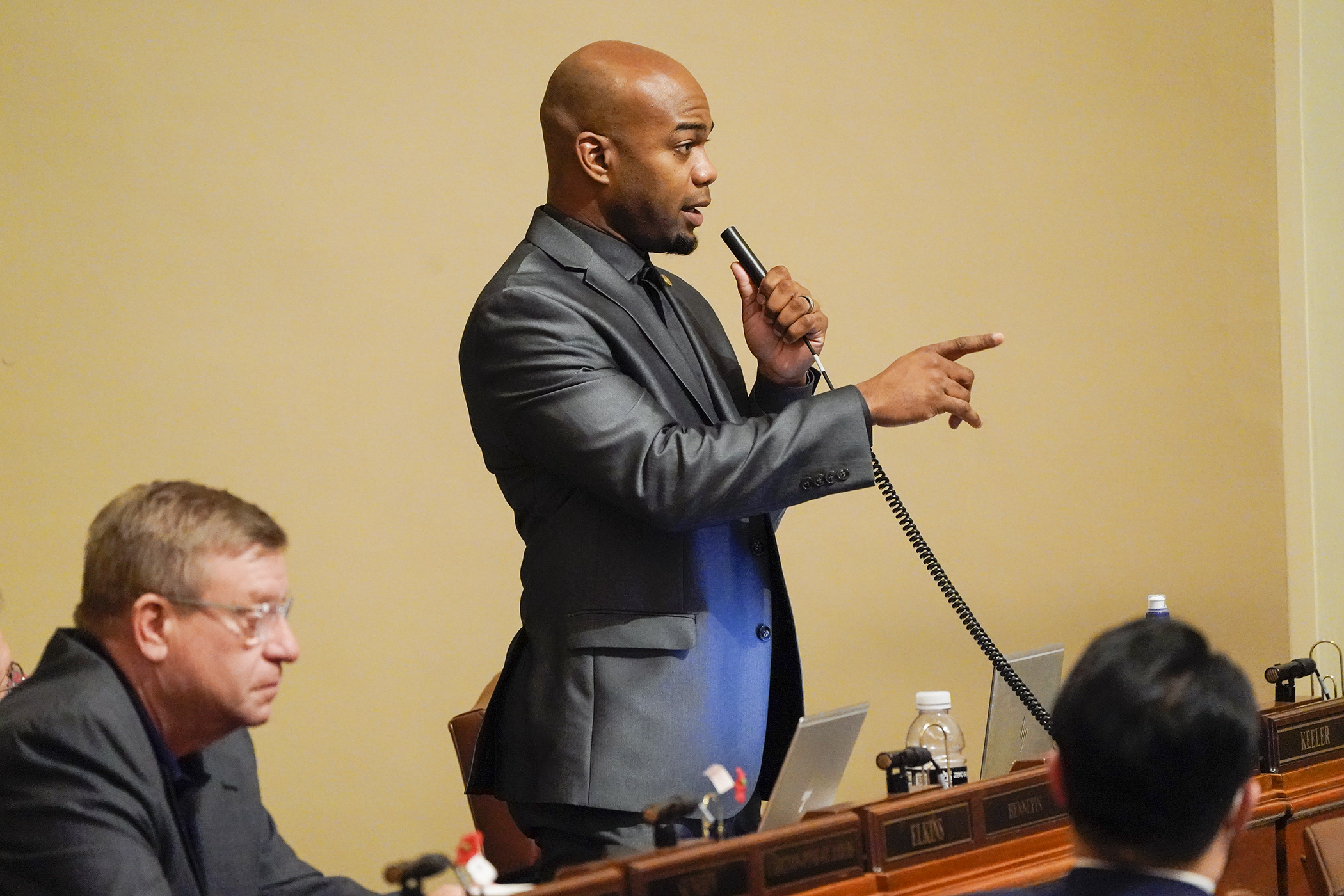House passes $1 billion plan for frontline worker bonuses

Workers on the frontlines during the COVID-19 pandemic could receive up to $1,500 each if their jobs put them at risk of contracting the virus during Minnesota's peacetime emergency.
By a 71-61 vote, the House passed HF2900, as amended, Thursday. It would appropriate $1 billion for such payments.
“This bill has been two hard years in the making,” Rep. Cedrick Frazier (DFL-New Hope), said in a statement. He sponsors the bill. “It has passed through six committees in less than a month, had many dedicated frontline workers drop everything to testify in support, and we’ve answered hundreds of questions from our colleagues. Now it’s passed off of the House floor. Our workers in Minnesota need to see action from Senate leaders on this bill now. We need to show that our Minnesota legislature puts people over profits.”
The bill’s next stop is the Senate where Sen. Erin Murphy (DFL-St. Paul) is the sponsor.
People eligible for the payments would include those who worked with the public in a wide range of areas – health care, long-term care facilities, emergency responders, public health, courts and corrections, child care, schools, food production, preparation and delivery people, retail clerks, grocery workers, hotels, bus drivers and janitors.
“Hundreds of thousands of Minnesotans continued to go to work in person, risking their own health and their family’s health in order to keep the rest of us safe and healthy, to provide us with the food products and services we needed so we could stay home to avoid exposure,” Frazier said during the Floor debate. “These are the Minnesotans on the front lines during COVID and who kept our economy moving.”
Frazier estimates about 667,000 Minnesotans would be eligible provided they worked at least 120 hours between March 15, 2020, and June 30, 2021 and not have collected unemployment insurance benefits for more than 20 weeks.
There would be an income limit of $85,000 ($185,000 for a married taxpayer filing a joint return). For those who worked directly with COVID-19 patients, that limit is $175,000 ($350,000 for a married taxpayer filing a joint return).
Rep. Peggy Scott (R-Andover) unsuccessfully offered an amendment to make the names of recipients and amounts public.
The Legislature appropriated $250 million last year for a bonus program, but lack of agreement by a Frontline Worker Pay Working Group meant no funds have been distributed.
Democrats bumped the want to $1 billion and proposed making 667,000 workers with essential jobs who couldn’t work remotely eligible for funds. Staying within the appropriation, Republicans wanted a more limited pool that included nurses, first responders, nursing home caregivers and correctional officers receiving about $1,200 each.
“It's disappointing Democrats continue to push their partisan bill rather than working to find bipartisan agreement within the parameters of last session's agreement,” said Rep. Anne Neu Brindley (R-North Branch) said in a statement.
A member of the working group, Neu Brindley raised several objections to the bill during debate, including that the pay would be available to people who worked just three weeks out of 67. She also voiced opposition to a $756,000 grant that would go to the Minnesota Training Partnership to promote the availability of payments to frontline workers.
Neu Brindley also made a distinction between people who risked exposure by facing the public and those who went to work with people who carried the coronavirus.
“They left their home every day knowing they would be exposed to it,” she said. “And yet, this bill is not going to help them.”
Related Articles
Search Session Daily
Advanced Search OptionsPriority Dailies
Speaker Emerita Melissa Hortman, husband killed in attack
By HPIS Staff House Speaker Emerita Melissa Hortman (DFL-Brooklyn Park) and her husband, Mark, were fatally shot in their home early Saturday morning.
Gov. Tim Walz announced the news dur...
House Speaker Emerita Melissa Hortman (DFL-Brooklyn Park) and her husband, Mark, were fatally shot in their home early Saturday morning.
Gov. Tim Walz announced the news dur...
Lawmakers deliver budget bills to governor's desk in one-day special session
By Mike Cook About that talk of needing all 21 hours left in a legislative day to complete a special session?
House members were more than up to the challenge Monday. Beginning at 10 a.m...
About that talk of needing all 21 hours left in a legislative day to complete a special session?
House members were more than up to the challenge Monday. Beginning at 10 a.m...